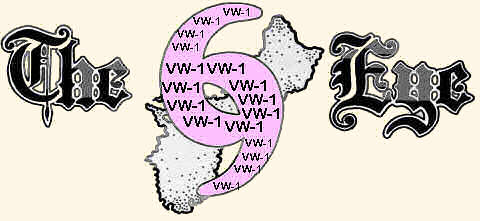
The readiness of the Navy depends on the retention of well-trained and well-qualified men who will re-enlist for career service. The Navy's inability to retain sufficient numbers of enlisted personnel is a problem particularly among men completeing their first enlistment. The loss of trained manpower with concomitant under-manning in critical ratings and senior rates of our ships and squadrons has a serious and adverse effect on fleet readiness. All echelons of command are confronted with the challenging problem, and an effective retention effort is essential.
It must be emphasized, however, that the privilege of reenlistment must reflect serious consideration of all the factors which determine a man's value to the service.
The optimum method of retaining the most qualified personnel is an ever-present challenge to any organization. Within the Navy, dynamic and vigouous personnel retention efforts are essential at all levels of command to meet the competition of those influences that tend to discourage a naval career.
The heart of a successful personnel retention effort is timely, capable and honest personal counseling. The career counselor concept is not one of the "hard sell" methods, but is rather one of assistance and assurance that each individual is completely and correctly informed about his prospects both in the Navy and as a civilian. We should not hesitate to use the chain of command to provide additional counseling to those persons who are considered well worth the additional effort.
Modern men respond to up-to-date methods--in personnel treatment just as in medical or surgical treatment. The reenlistment problem is basically a "grass roots" matter that demands attention from the day the man enters the Navy until the critical "pay-off" time when the man faces the reenlistment decision. Regardless of what situation is involved the personal interview is the most effective method of bringing a man to look at himself objectively--to realize his own possibilities and limitations, particularly in the light of what his concrete opportunities are."
This is good for the organization as well as the individual. One single move to find out why people behave and feel the way they do is worth ten moves in the direction of telling people how they ought to feel and behave.
In the personal interviews you recognize and treat people as individuals, with varying abilities, capabilities, traits, limitations, interests, problems and goals. You aid the man being interviewed to develop his insight; you supply him with factual information which bears on the situation involved; and you help him reach an intelligent decision. the element of personal counseling are rudimentary in themselves, but when applied they add up to a demonstration of the best type of leadership.
Only by reenlisting high caliber men will the youth-experience proportion required to sustain vitality and optimum effectiveness of the Naval Establishment be attained and maintained. Reenlistiments, therefore, are of paramount importance to every command in the Navy.
Many of our men do not need to be counseled on the benefits of a service career to reach a decision to reenlist. Their decision is automatic and reenlistments are only administrative actions for them to continue to selflessly devote their lives to the service of their country. Their pride of service and dedication to a Navy life is paramount. The benefits so frequently referred to herein, thought important, are not decisive. To these men the career couseling program is important because it provides a way the Navy can fulfill its obligation to keep all personnel properly and adequately informed.
Regardless of his motive, a man reenlists only if he makes an active decision to do so. If he does not make the decision for himself, the Navy makes it for him by giving him a discharge. His failure to decide is the same as his deciding to get out.

The Career Counseling Program will help prevent "lack of decision" discharges. By providing a planned program for the counseling and guidance of personnel, particularly those in their first term of naval service, it will furnish them with the basis for a considered decision. The Navy loses many men because of two kinds of decision failure: (a) Some men just "sit tight", never make a decision and accept their discharges. (b) Some men make an active decision, but only about what they are going to do after they get out. All their decision making is directed toward choosing among the various civilian alternatives which they believe are open to them--never seriously considering the Navy alternative because it has not been fully presented to them on a comparative basis. Frequently, this type of decision making amounts to "going along with crowd," a type of herd psychology that can only be overcome by the individual approach of a personal interview.
The individual counseling approach to reenlistment has been tried and has proved successful. One of the main reasons is that a personal interview is the most effective way to bring out the tremendous number of concrete benefits of a Navy career. Our men are vaguely aware of the death benefits--tombstone, grave, casket, widow's pension,etc.--but also most no one is fully appreciative of the magnitude of financial gain of a live Navy man.
Many of the men going out are heading for an imaginary heaven of civilian life without ever having faced the problem of making a living outside the Navy. What does a civilian, for instance, have to earn to equal the real wage of a career petty officer? Does he see the full extent of his real Navy income in contrast to what he will get in private industry? And has he figured out what he will actually have left in his pocket when he has paid out of his check all expenses for subsistance. living accommodations, social securtiy, annuity toward retirement, insurance and income tax? Has he considered the value of a guaranteed steady job as against the ever-present worry that he may be "laid off" or employed only part time? Of the value of a 30-day vacation with pay, as compared to the normal maximum of two weeks in civilian employment? These points, and many more can be effectively presented to each individual through timely, capable and honest personal counseling.

Page Added 05/03/16
This VW-1 newsletter is courtesy of Ronald Miles AE3 VW-1 67-69 TE-8.

VOL. 2 NO. 1 NAS AGANA, GUAM
April 1968
April 1968